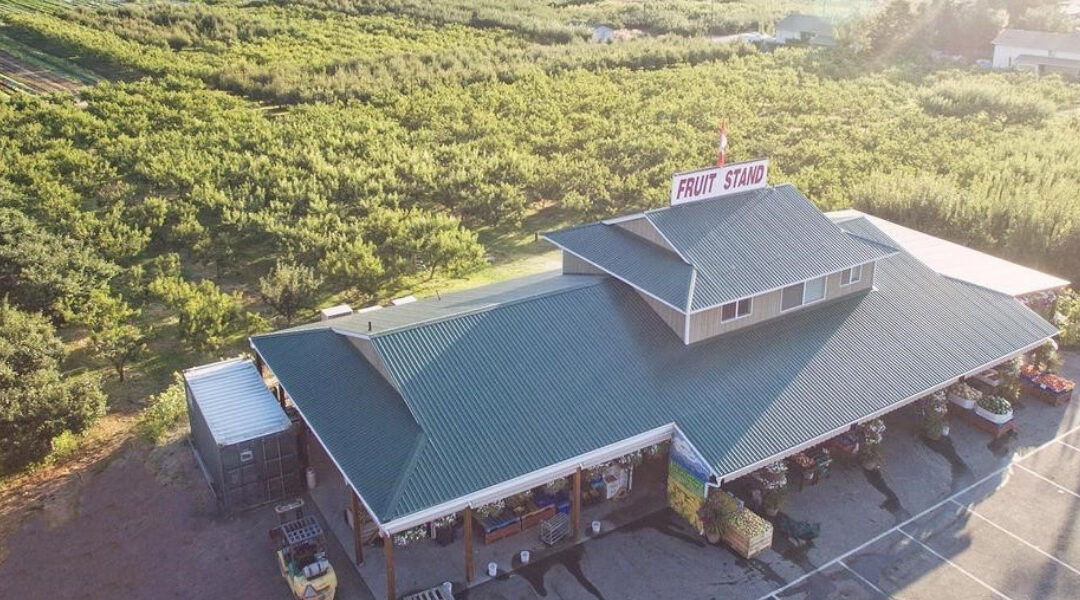Introduction
The Okanagan Valley is an agricultural mecca – full of vineyards, orchards, farms, and agritourism businesses that have been impacted by the climate crisis. Shifting weather patterns, increased drought, and forest fires in recent years are causing significant challenges to the Okanagan’s economy.

Photo: Alex Loraas
So how are food and wine producers reacting?
As climate crisis events occur more often and with greater intensity, agricultural businesses in the Okanagan are finding ways to diversify their offerings, to bring income into the business year-round, and to supplement their main agricultural products in case of crop loss.
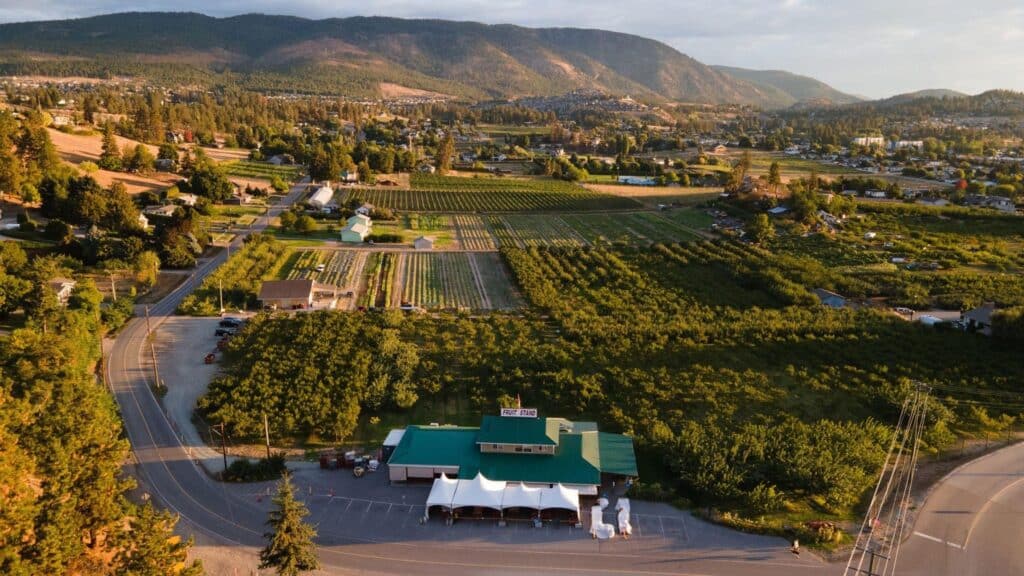
Paynter’s Fruit Market is a 40-acre fruit and vegetable farm, based in West Kelowna. An onsite store stocks the farm’s produce alongside food products and groceries exclusively made in BC.
The Paynter family has been farming in the Okanagan for over 100 years, and though extreme climate events have always impacted the farm, the accelerated rate at which they have been occurring has resulted in crop loss, reduced tourism, and lower inventory.
The farm grows several varieties of peaches that normally ripen between July and August but a deep freeze in January 2024 hit the peach trees hard, decimating the buds and resulting in zero peaches for the summer.
Okanaganites are serious about their peaches and look forward to them all year long. Jennay Oliver, the fourth-generation owner of the farm, took this challenge in stride. With winter-hardy Italian prune plum trees still healthy, she encouraged peach lovers to try this other alternative fruit, allowing the farm to continue offering u-pick and in-store sales.
Paynter’s has always offered more than merely selling produce by providing a full farm experience. This year they will offer a guided walk through 10 acres of fruit orchards and vegetable and herb gardens where guests will learn about the growing and harvesting process.
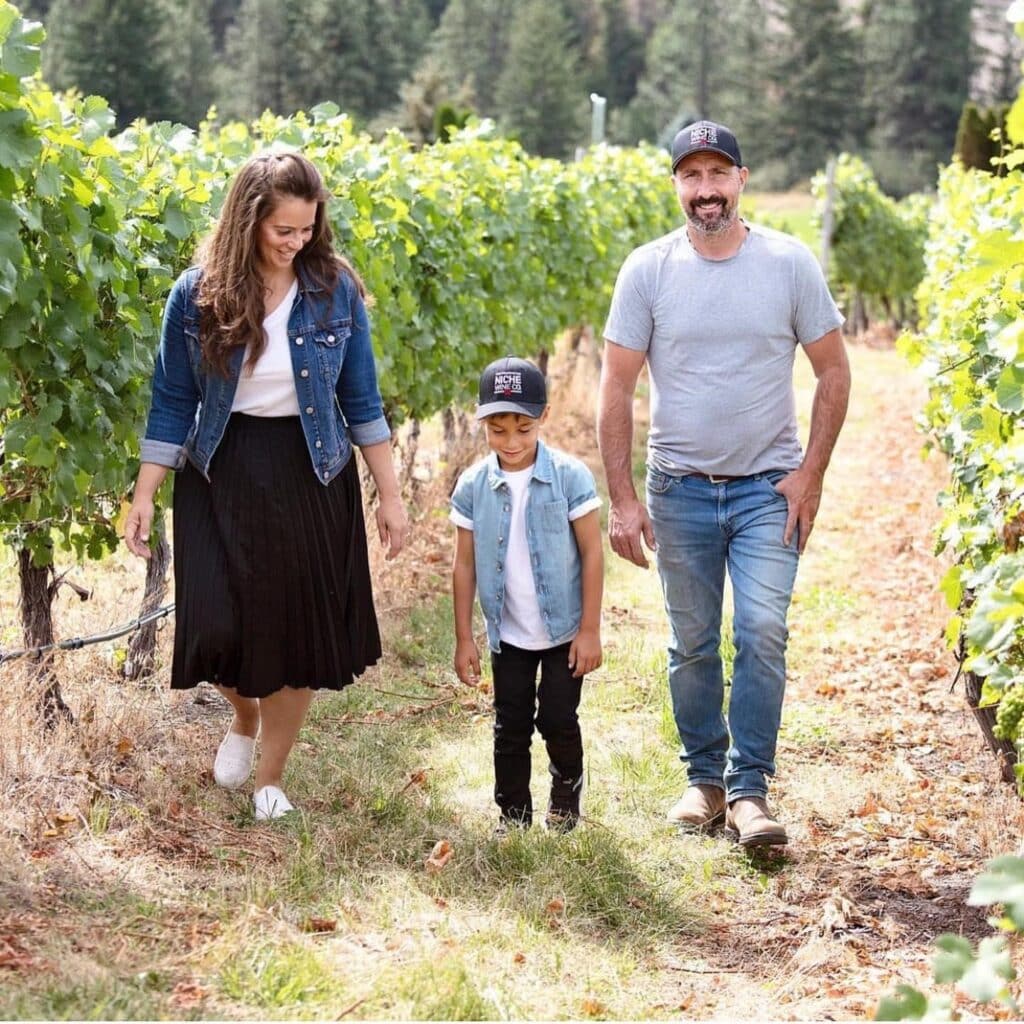
Photo: Niche Wine Company
Another West Kelowna operation adapting to the climate crisis is Niche Wine Company. The business was deeply affected by both the McDougall Creek fire in 2023 and the January 2024 freeze. With a history of smoke-tainted grapes during fire years and the loss of the entire crop in 2024, the small winery has had its fair share of challenges.
But there is hope and promise for 2025 vintage wine. Niche has collaborated with other wineries in West Kelowna to source fruit and pressed juice from Washington vineyards just 4 hours south – enabling maximum winemaking while offering the same delicious taste of the region.
Niche owners James and Joanna Schlosser are no strangers to farming. Last summer they experimented by planting strawberries and other fruits and vegetables between the grape vines. With irrigation already set up, this move allows them to use the land and technology to offer a broader farm experience for visitors.
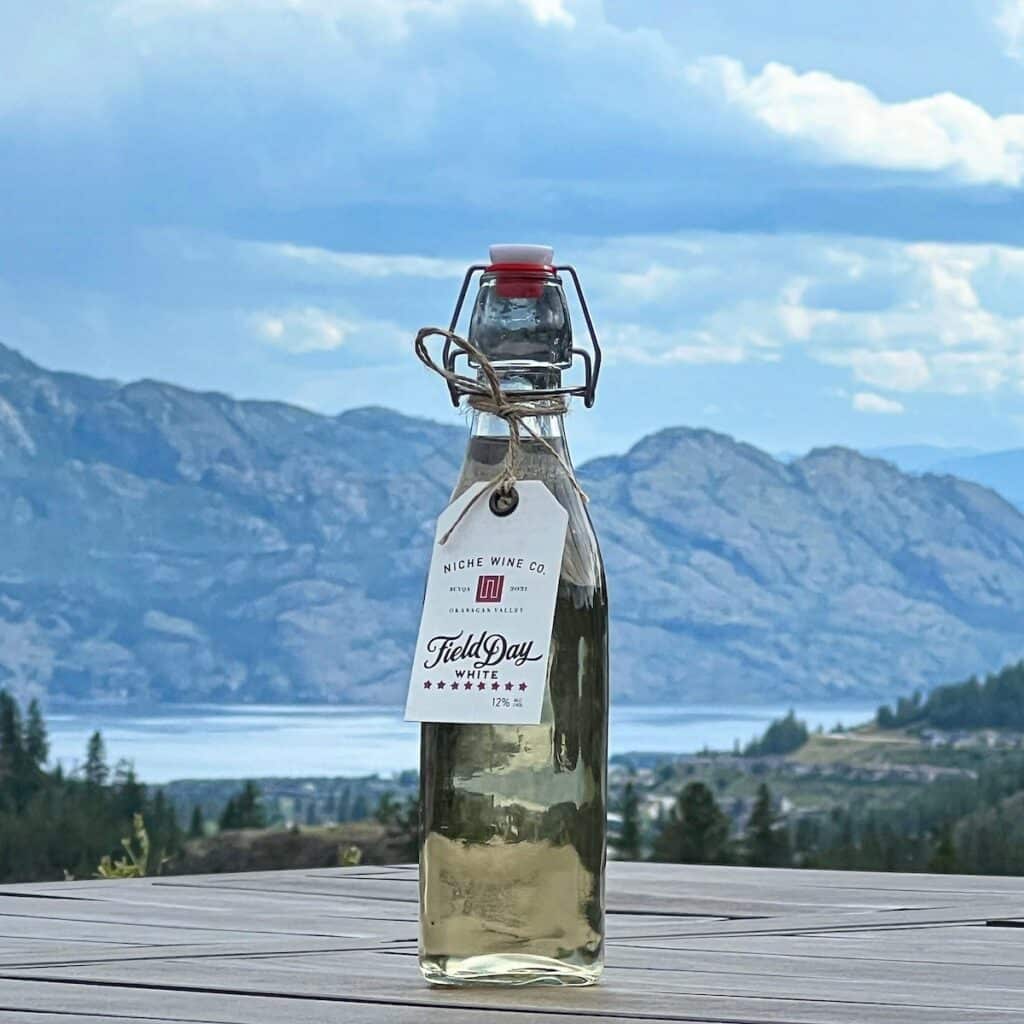
Photo: Niche Wine Company
Niche Wine Company has also expanded further into agritourism through building three studio-style short term rental units, opening for the summer season. The units, collectively named The Outside Inn, are built from recycled sea cans and resemble a cozy hotel room, complete with a bathroom, seating area, and wine fridge. The units are designed with a focus on sustainability, built from durable and long-lasting steel.

Photo: Niche Wine Company
While Niche adapts to climate challenges it also continues to implement sustainable environmental practices. It offers refillable glass bottles of wine, a nod to wine history in France and Italy where refilling containers is a natural practice. Offering these containers (also known as growlers, similar to those commonly used at breweries) reduces glass waste and recycling.
Supporting Local Agricultural Businesses
Supporting local agriculture is a way of responding to the climate crisis. It’s also a way to support small businesses. The beautiful thing about buying local produce is that there are so many benefits:
- Farmers receive fair prices for their produce as they’re able to sell directly to their consumers
- Transportation expenses and emissions are reduced, decreasing the carbon footprint
- Consumers enjoy fresher, more delicious, and more nutrient-dense produce
- Small businesses create jobs that employ people in the community
- Money stays in the local economy, creating a stronger community
Implementing lifestyle changes that support local farmers and producers may require some creativity depending on the region. Fortunately, there are numerous ways to access farm-fresh produce and contribute to a thriving and sustainable local food system. This includes joining a Community Supported Agriculture (CSA) program, purchasing a local produce subscription box, shopping at farm stands and local grocers, joining a locally-owned wine club, or planning a getaway to an agritourism destination.
I began ordering fresh, local produce with Urban Harvest Organic Delivery in the Spring of 2024. The produce delivery service has completely removed the hassle of grocery shopping for fresh and local fruits and vegetables. I’ve been introduced to a number of vegetables I’d never tried before, reduced my grocery spending, and developed a deeper emotional connection to my food. A produce subscription delivery box is an excellent way of doing your grocery shopping with a local business connected to local farms.
Owner Lisa McIntosh has been in the business of providing farm fresh organic produce to customers for over 25 years. Lisa works from home and regularly cycles to the warehouse, reducing her own transportation emissions and office needs. She encourages her customers to opt in or out of plastic wrap and bags for vegetables by simply checking a box or leaving a comment on the online order form. As many of its producers are smaller farms, the company arranges the sharing of truck space while transporting produce. This has reduced carbon emissions.
By supporting local agriculture, you’re not only enjoying the freshest, most flavorful produce, but also contributing to a more sustainable and vibrant local economy. By embracing these alternative approaches and being creative with your spending, you can build a more resilient and sustainable food system that connects you with your community.
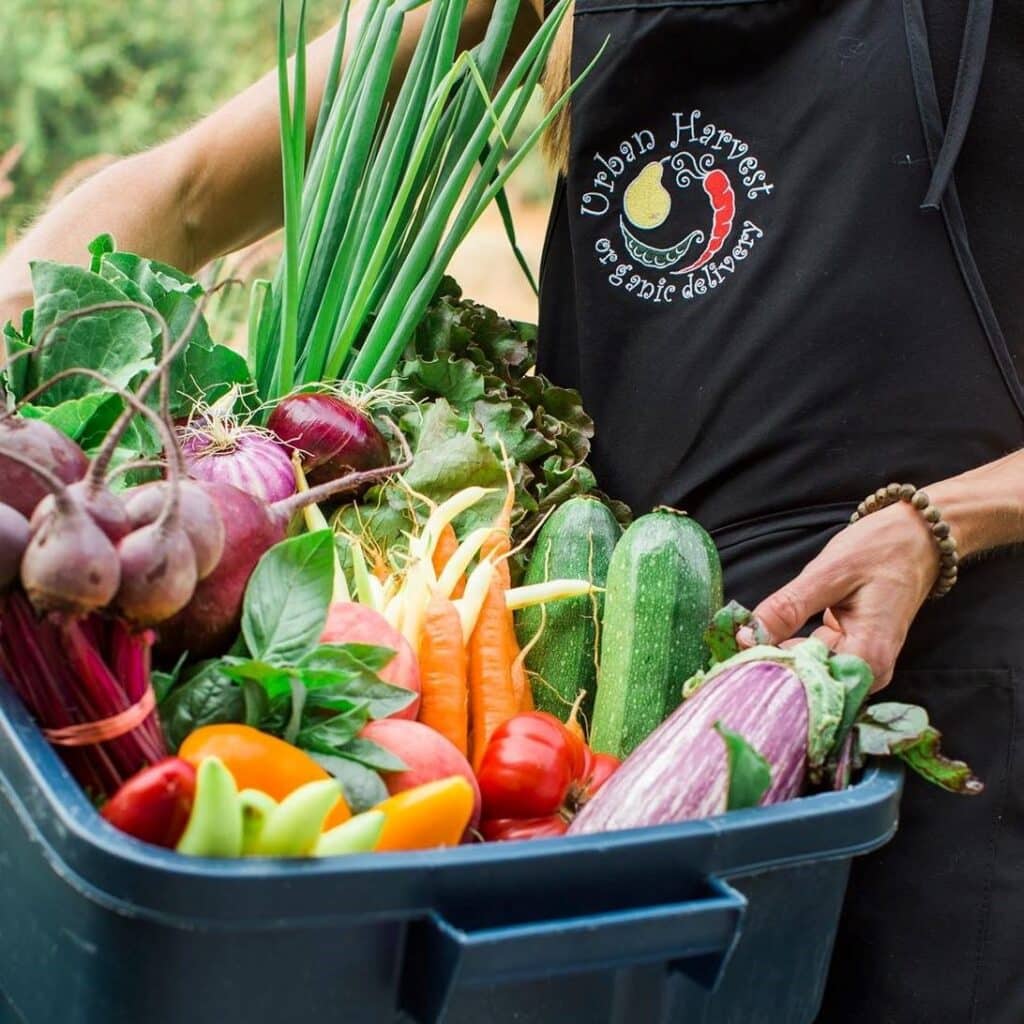
Special thanks to Jennay Oliver, Joanna and James Schlosser, and Lisa McIntosh for their time and insight into sustainability and business.
Resources:
- https://farmfolkcityfolk.ca/climate-solutions/
- https://www.facebook.com/SlowFoodThompsonOkanagan/
- https://www.slowfood.com/communities/
- https://www.thompsonokanagan.com/content/2023/where-the-food-tells-the-story
- https://www.thompsonokanagan.com/content/tag/Slow+Food
- https://farmfolkcityfolk.ca/feast-of-fields/chefs-makers/slow-food-thompson-okanagan/
Photo Credits:
Feature image: Paynter’s Fruit Market
Alex Loraas works in the tourism industry in Kelowna and has a Bachelor’s Degree in Tourism Management from Thompson Rivers University. She has interests in sustainability, marketing, wine, and tourism.

